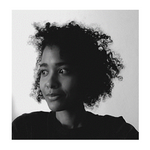Hey there! For those who don’t know me, I’m Chiara and I work on the Marketing and Communications team at The Interledger Foundation.
This month, I get the pleasure of sharing the April Roundup!!
We’ve had a busy month, so here are the key updates:
If you haven’t heard, we are going to Cape Town, South Africa for the annual summit!
You can find more information about the summit here. If you are interested in participating in a talk/demo, workshop, panel or contribute the Interledger Innovation Exhibit, you can read more about the opportunities and apply here. Call for speakers is open until May 28th!
The ILP Digital Financial Services grant is also open!!


Interledger Foundation Accepting Applications for ILP Digital Financial Services Grant
Julaire Hall for Interledger Foundation ・ Apr 30
The open call for submissions started on April 30th and will be open until August 30th. Read more about our grant and requirements here.
One of the biggest share-outs this month was the April Community Call.


Meeting Minutes and Recordings from Interledger Community Call - 10 April 2024
Vineel R. Pindi for Interledger Foundation ・ Apr 11
During the community call we had updates from Fynbos, Sabine and Mifos
Fynbos shared an update on their project and the next steps in connecting multiple wallets in the US, South Africa, and Europe (coming soon)!
Sabine discussed details about the Rafiki updates, and the new Alpha 8 release!
when is Rafiki ready for Beta?, you may ask. The answer to that is: As soon as all our security additions are merged in…
During the call she shares more details on the security features and where we are at with a Beta release.
Lastly, Mifos gave us a deep dive into their project ILP for Digital Public Infrastructure.
I found the update from Mifos so helpful as they explained Digital Public Infrastructure (DPI) and Digital Public Good (DPG) and why it’s important for us. I recommend listening to the call but here is my quick recap:
According to the document that Mifos shares, DPI is defined as:
A set of shared digital systems which are secure and interoperable, built on open standards, and specifications to deliver and provide equitable access to public and/ or private services at societal scale and are governed by enabling rules to drive development, inclusion, innovation, trust, and competition and respect human rights and fundamental freedoms -India’s G20 Presidency, 2023
During the call, Mifos explains that “just like ports, highways, and water systems, digital infrastructure organized on a public basis can form the backbone of socio-economic development.”
Mifos uses the UN Secretary-General's definition of DPGs as:
Open source software, open data, open AI models, open standards and open content that adhere to privacy and other applicable laws and best practices, do no harm, and help attain the Sustainable Development Goals
Mifos then goes into details of the initial stages of their project, which included 18 interviews with experts and designs for adoption. If you want to know more about DPI, Mifos shared this helpful link!
There are way more details to share from everyone so if you missed any of this or want to learn more you can listen and watch the community call here:
Watch Meeting recording on Youtube.
Listen to the Podcast for free on SoundCloud and Castopod.
Next, we had the first Hackathon on Rails!
Bowie State University made a trip to Fayetteville State University, where the students learned about Interledger, the possibilities of open payments, and the impact it can have on the greater economy.
Tomisin, the Bowie State Community Engagement Scholar writes...
Reflecting on our project during the hackathon, our team focused on developing solutions for digital financial inclusion. Using the Interledger Foundation as inspiration we came up with the initiative, EmpowerU.
Read about their trip and the project they worked on with students from Fayetteville State University and Cape Town University!

Riding the Interledger Express: Innovating for Inclusion at the Bowie State and Fayetteville State Hackathon
𝒯𝑜𝓂𝒾 ・ Apr 29
Don’t miss the latest Digital Money blog post!


The Mobile Money Ecosystem, North America
Julaire Hall for Interledger Foundation ・ Apr 23
Julaire Hall explores the Mobile Money Ecosystem in North America...
At a global level, it is highly probable that the future of money will consist of a mix of centralized and decentralized central bank digital currencies. If we’re talking digital payments then we must explore how CBDCs will expand the current landscape and foster greater inclusivity to those currently underserved and unbanked.
Last but certainly not least!!
Listen to the latest F|M Podcast episode: Re/Simulate
This week, we have a dynamic collective from Mexico City and Quito: Felipe Brugues, Ana Rodriguez, and Juan Carlos Leon.
Their project, Re/Simulate, uses 3D-printed clay sculptures to investigate the effectiveness of financial and economic programs.


The eight episode of the F|M podcast is out now!!
Lawil Karama for Interledger Foundation ・ Apr 30
What a month!
Thank you for reading!! Leave me comment.
Chiara






Top comments (2)
Love it!
There is so much happening at the moment, it's so hard to keep track of it all... but thanks for helping us out Chiara!